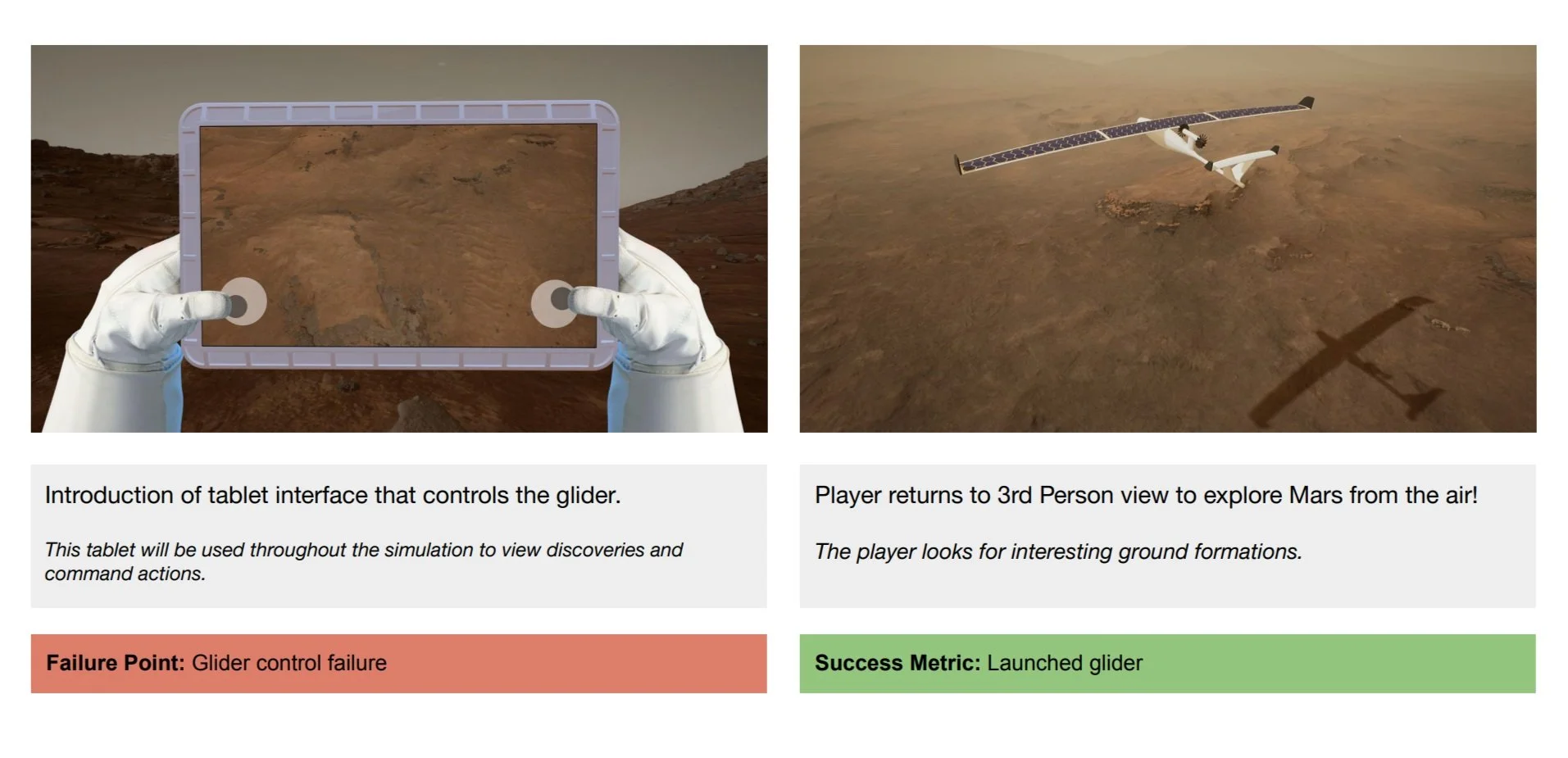Trillium Wins Phase 1 of NASA MarsXR 2 Challenge
In early 2023, NASA launched its MarsXR 2 challenge and invited entrants to build VIrtual Reality (XR) assets and scenarios for NASA’s use in extravehicular activity research for the surface of Mars. The challenge was hosted by NASA and HeroX and included design and creation for the Mars XR Operations Support System (XOSS) environment using Epic Games’ Unreal Engine 5.
Trillium Technologies’ submission, titled “Finding biosignatures on Mars with an AI glider,” was a winner in the first phase of the challenge.
Trillium’s concept was a multiplayer VR simulation in which astronauts could use an AI Martian glider to identify evidence of fossilized life on the surface of Mars. The glider would be embedded with advanced sensing capabilities and onboard machine learning (ML) to help it identify fossilized biosignatures from an aerial perspective. The AI glider would be able to scan for areas of interest for hundreds of miles around a future human landing site, differentiating between purely geological and promising biological features not visible from orbit. This ML-assisted identification would then prompt astronauts to traverse to only those regions exhibiting the signatures of ancient life within Mars’ expansive tundra.
The simulation concept was inspired by a seminal Nature article, “Orbit-to-ground framework to decode and predict biosignature patterns in terrestrial analogues” authored by FDL.ai faculty members Freddie Kalaksis and Kimberely Warren-Rhodes.
Trillium Technologies is a research and development company with a focus on the application of artificial intelligence to systems problems for planetary stewardship, space exploration, and human health. Read more at trillium.tech.


